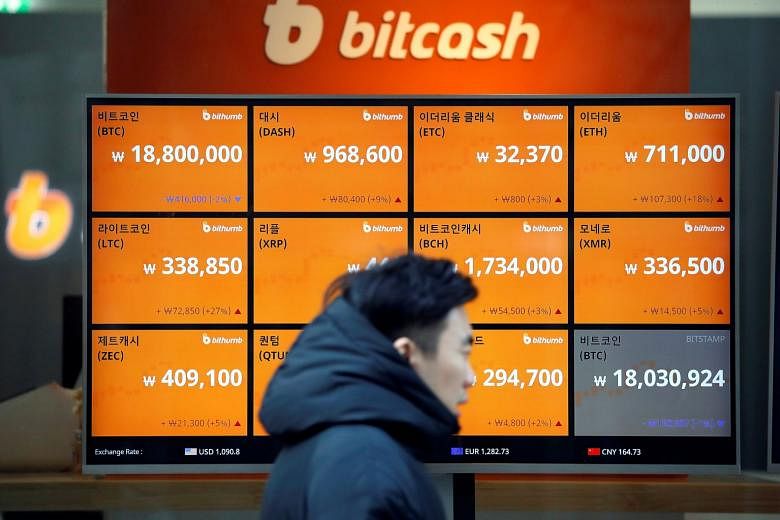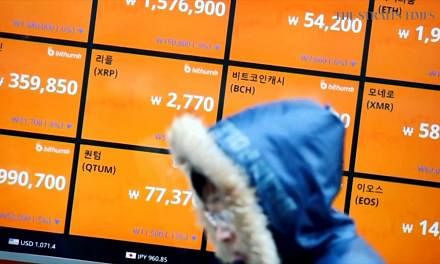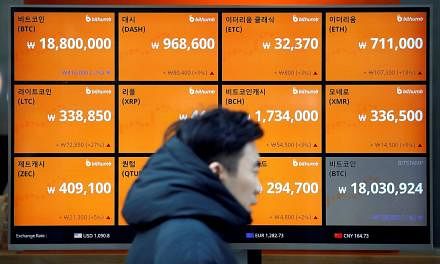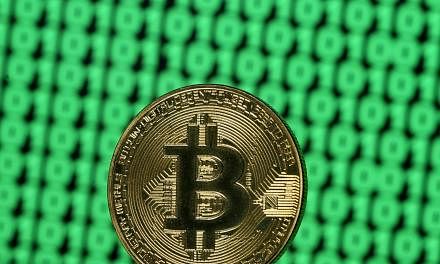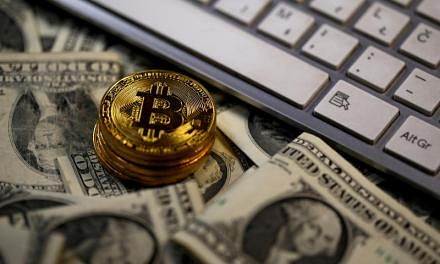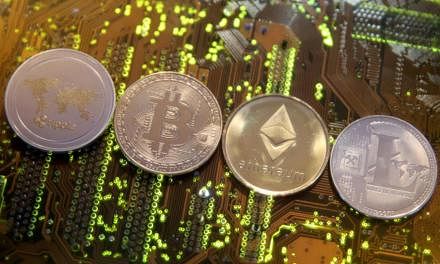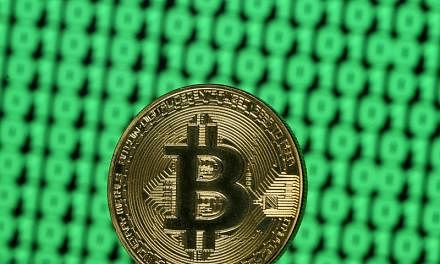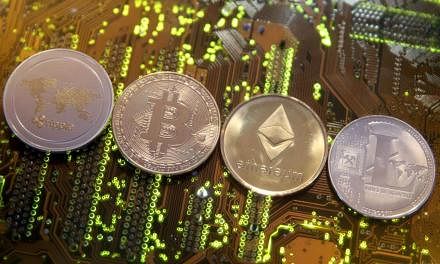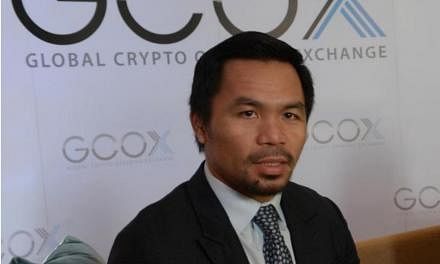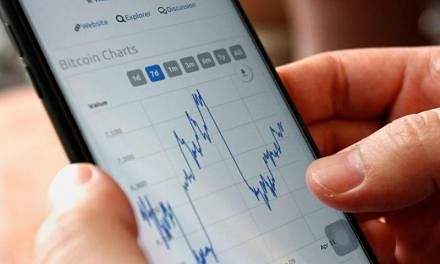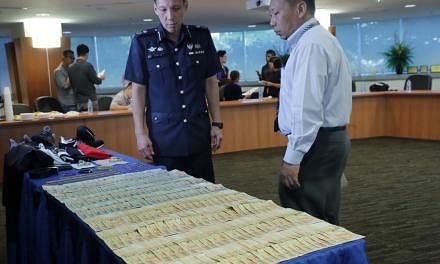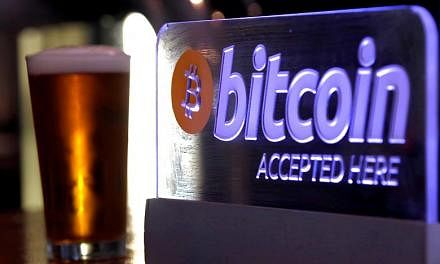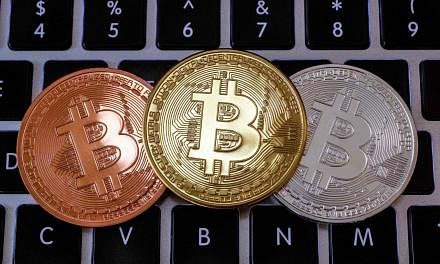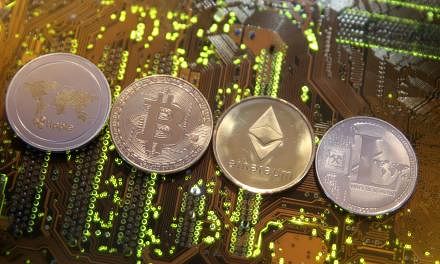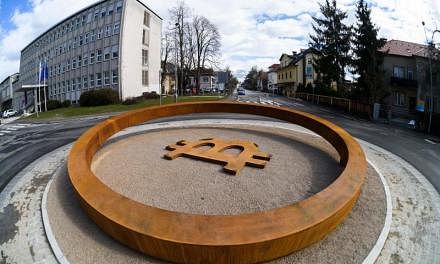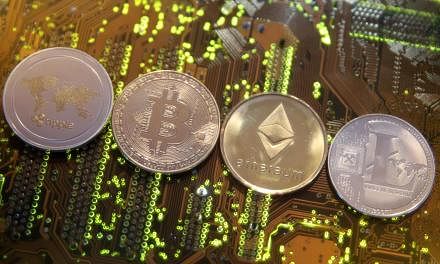SEOUL (THE KOREA HERALD/ASIA NEWS NETWORK) - Do yourself a favour: stop buying bitcoin. Yes, I can read charts too. I can see how the graph has gone up from US$800 (S$1055) per coin in January 2017 to a little over US$15,000 this January.
But seriously, do yourself a favour and stop buying. This is the most obvious bubble ever.
As the first century BC Latin author famously wrote, "Everything is worth what its purchaser will pay for it."
No other quote seems to more perfectly encapsulate the irrational absurdity of bitcoin's surging value, especially when one considers what bitcoin actually is.
Although the origins remain shrouded in mystery (something no doubt helping to inflate its value through mystique), the general consensus is that bitcoins were designed to model and collect data on the nature of transactions, either as a research tool or amusing diversion.
The very process of creating new bitcoins (mining) depends on recording their transactions, creating a feedback loop one might describe as self-regulating.
Although its name, cryptocurrency, suggests bitcoins have some intrinsic value, the truth is they have none.
This is because they are not anchored to anything of material value.
This is in critical contrast to national currencies such as the Korean Won or US dollar, which are anchored to their ability to pay taxes in their respective countries of issue.
These national currencies are also backed, by law, with the ability to be exchanged for precious metals from the national treasury.
In fact, that's what coins are: precious metals backed by a valuation through national currency. Bitcoins are not backed by anything, meaning they are technically worthless.
Bitcoins are also different from stocks and derivatives in critical ways. Stocks represent ownership over a company, giving you the right to share profits (dividends) and have a claim over liquidity (ownership over part of a factory, for example).
Derivatives like insurance policies and futures grant claims over expectations of future profit.
Insurance policies, for example, grant claims to payouts while futures grant claims to the expectation of things sold or appreciating at a later date.
Bitcoins, however, give you no claim to anything.
So how the heck does something without intrinsic value suddenly become worth US$15,000?
As Nobel laureate Paul Krugman put it in a recent interview with Business Insider, "It really doesn't make a whole lot of sense."
According to Krugman, "the feeling that people are caught up in something that they really don't understand is overwhelming," especially when it seems to "work."
Last year, most people who bought Bitcoins would say it "worked" because they turned a profit.
This likely explains why December was a crazy month for bitcoin in South Korea, with 21 per cent of all market volume being traded in Korean currency in a single day.
Another useful comparison is the collectible postage stamp.
A 100-year-old stamp has very little intrinsic value: only that stamped on its surface.
However, because of its rarity, it is considered a collectible item and assigned a value based on demand by collectors.
Perhaps this type of synthetic, attributed value is what explains bitcoin behaviour the best: As more people want it, the price goes up.
This makes consumer confidence an important parameter in deciding value.
One practical application of bitcoin is its use as anonymous currency.
Whereas national currencies, stocks and derivatives require some level of verification of the owner through bank accounts or legal documents, cryptocurrencies do not.
This likely makes them an attractive place for black markets to park money, likely contributing to price inflation.
So how much higher can bitcoin go?
No one really knows so be wary of anyone who pretends otherwise.
As Krugman puts it, "We're waiting for a Wile E. Coyote moment. You know, the cartoon physics, he runs off the edge of a cliff and it's only when he looks down and realizes there's nothing under him and he goes. So we're waiting for that sort of thing to happen."
I sincerely hope it doesn't happen to you.
The writer is a professor at Dongseo University in South Korea and the associate director of the Tan School at Fudan University in Shanghai. The Korea Herald is a member of The Straits Times media partner Asia News Network, an alliance of 23 news media.
